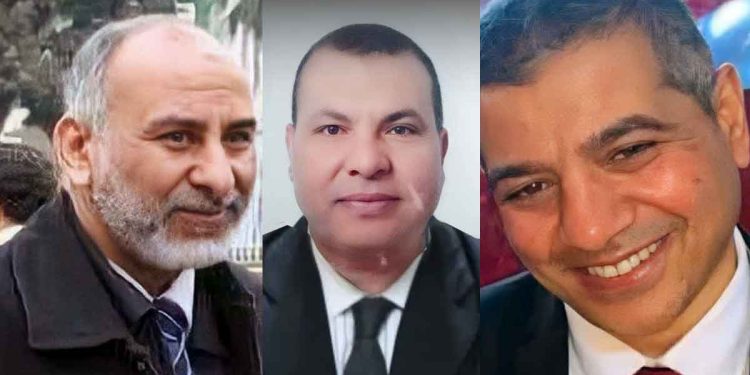Arab Organisation for Human Rights in the UK (AOHR UK) raises alarm bells over the death of three prisoners in Egyptian prisons withing the last 48 hours, considering it a wake-up call for the international community to take a firm position and to intervene to put an end to the ongoing violations against Egyptian prisoners.
AOHR UK identified the three prisoners as Ahmed Mahmoud Mohamed Ibrahim, Magdy Abdo Al-Shabrawy, and Shaaban Mohamed Sayed Shabaka.
The three prisoners, held over political charges, died after being subjected to deliberate medical negligence.
Ahmed Mahmoud Mohamed Ibrahim, the former deputy of the Freedom and Justice Party in Suez, died on Nov.17, in Wadi El-Natrun Prison 440, after seven years of arbitrary detention, during which he deprived of his right to medical treatment as he suffers heart problems.
On Nov.16, Majdi Abdo Al-Shabrawi, who had been detained since 2014, died in the notorious Badr 3 prison after suffering from difficult health problems without receiving any medical aid.
On Nov. 15, Shaaban Muhammad Sayed Shabaka died in Qanater prison after suffering high blood pressure over the past week without being transferred to hospital. He was later moved to Sadat Hospital only two days before his death, where doctors could not save him.
AOHR UK confirms that the three prisoners’ death came as a result of the Egyptian systematic and continued repression policy aimed at silencing critical voices in the country.
Since the start of 2022, 38 Egyptian prisoners died in prison due to the deadly medical negligence policy. Four of them died in November, bringing the total number of those died in Egyptian custody to more than 1,000.
AOHR UK pointed out that thousands have been systematically arrested since July 2013, and sentenced in unfair trials over fabricated charges in flagrant violation of international laws and norms.
AOHR UK stresses the need for an urgent international intervention to save the prisoners’ lives in Egyptian prisons before it is too late, noting that UN bodies were denied more than once access to detention facilities in the country to investigate the reported human rights violations.






























